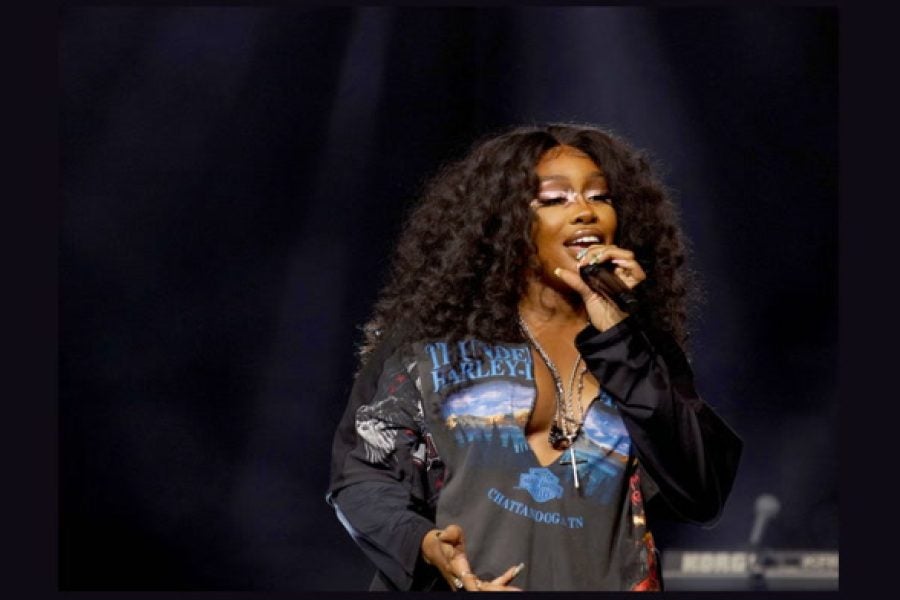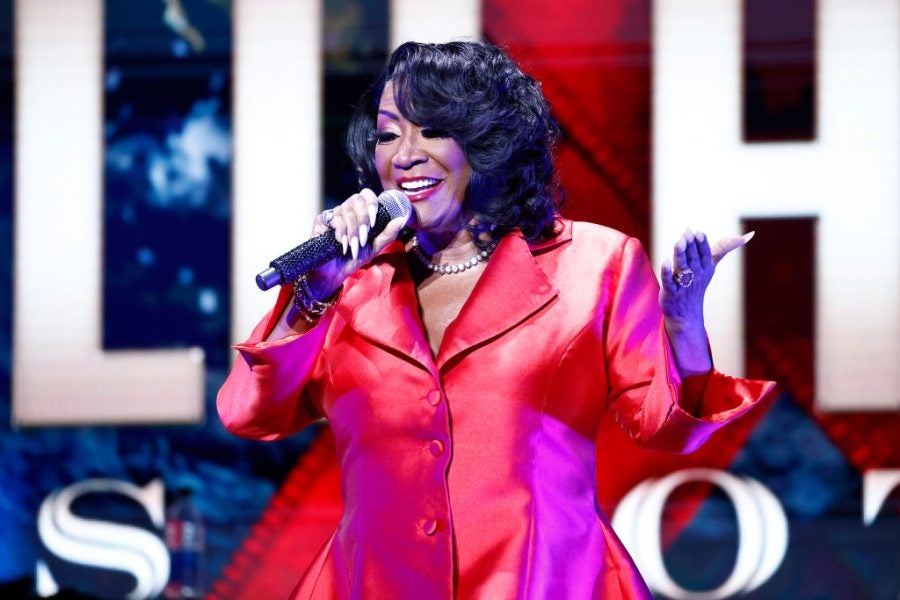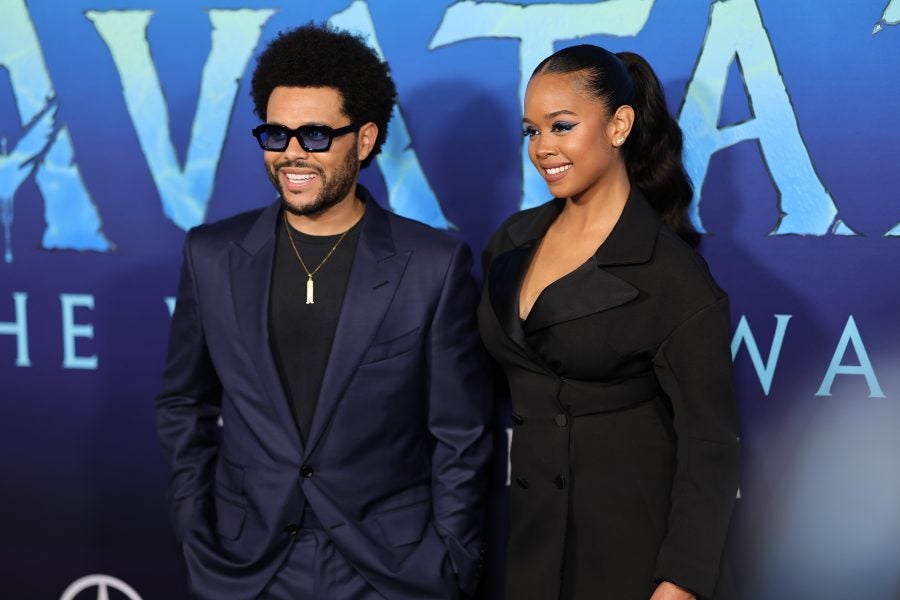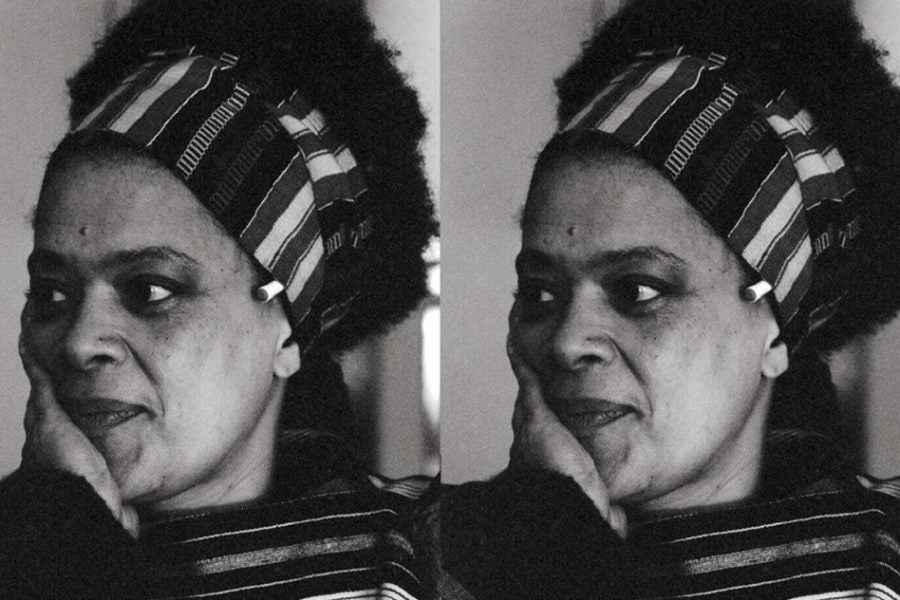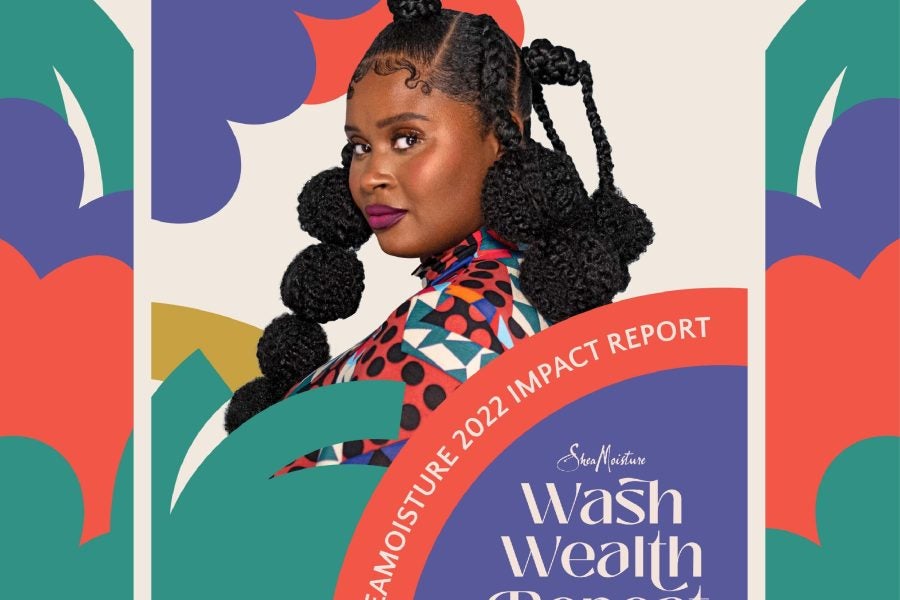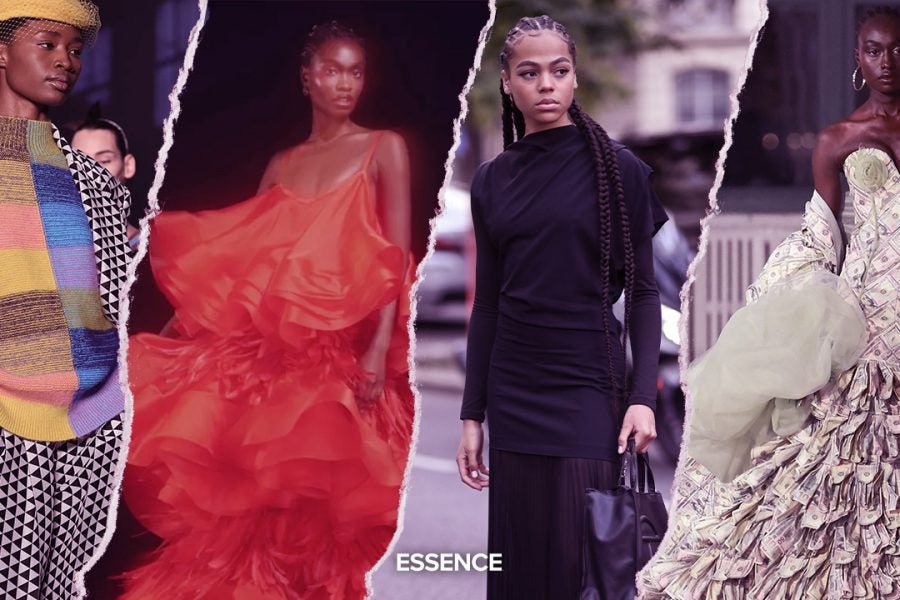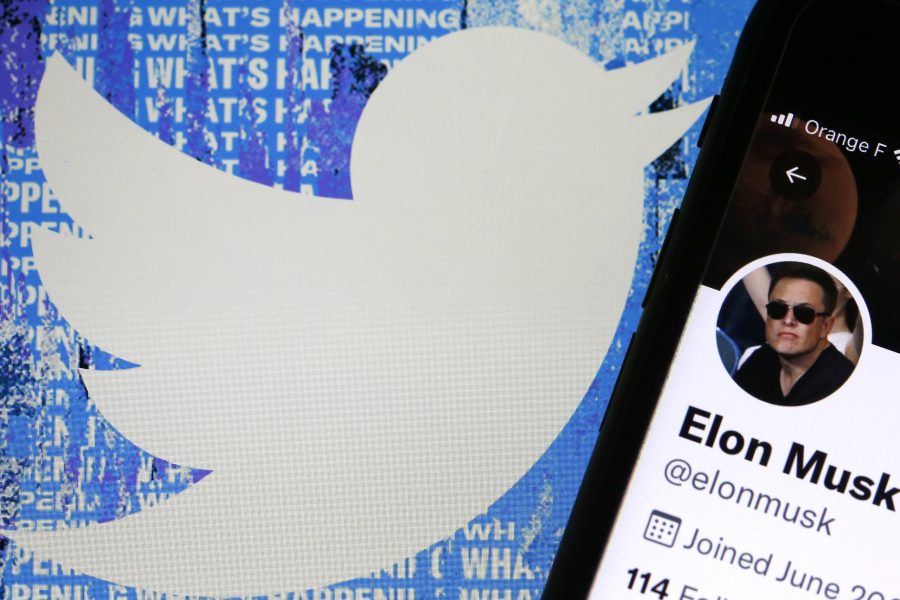
“Twitter sometimes feels like the ex-boyfriend I keep going back to,” June Johnson, 39, says with a laugh. “[I] question myself why because I know that it’s not always healthy but it is entertaining.” The social media lead at Sad Girls Club, a non-profit organization that works to support and destigmatize mental health care for women of color, Johnson is concerned how Elon Musk’s acquisition of Twitter could impact the Black women her organization caters to.
And she’s not alone.
When Elon Musk, the richest person in the world, finally acquired Twitter for $44 billion in October, after months of legal drama, many expressed their concerns given his track record as a CEO.
Tesla, another one of the billionaire’s many companies, is currently being sued by California’s Department of Fair Employment and Housing (DFEH), alleging that Black workers in the company’s Fremont factory experienced “rampant racism.” Ex-employee Kaylen Barker, a Black woman who worked at a Tesla manufacturing plant, stated that being a Black worker there was to “suffer painful abuses reminiscent of the Jim Crow era,” in a lawsuit against the company.
With this claim (and little accountability on Musk’s part), many are worried that Twitter’s newest regime will have even more of an impact on Black people, specifically Black women.
“Social media platforms for women of color, specifically Black women can be a very dangerous, harassing, harmful place,” says Johnson. “As an organization that focuses on protecting [the] mental health of Black women and femmes, we have to be really careful about how we use and engage on this platform.”
The Immediate (And Racialized) Disadvantages of Free Speech
Prior to his acquisition of Twitter, Elon Musk, who has referred to himself as a “free speech absolutist,” criticized the platform’s restrictions on users’ posts. He argued that the social network is “failing to adhere to free speech principles” and “undermines democracy.”
In a statement formally announcing his interest in purchasing the platform, Musk underscored these ideals, stating that “free speech is the bedrock of a functioning democracy, and Twitter is the digital town square where matters vital to the future of humanity are debated.”
Musk’s interest (or lack-there-of) in content moderation has proven to be troubling—particularly for the network’s Black users. In response, NAACP president Derrick Johnson released a statement saying: “Mr. Musk: free speech is wonderful, hate speech is unacceptable. Disinformation, misinformation and hate speech have NO PLACE on Twitter. Do not allow 45 to return to the platform. Do not allow Twitter to become a petri dish for hate speech, or falsehoods that subvert our democracy. Protecting our democracy is of utmost importance, especially as the midterm elections approach. Mr. Musk: lives are at risk, and so is American democracy.”
While Musk did not respond to Johnson directly, he did tweet the following day that “the extreme antibody reaction from those who fear free speech says it all” and that he was “against censorship that goes far beyond the law” but “if people want less free speech, they will ask government to pass laws to that effect.”
Just 12 hours after Musk’s takeover, the platform did, in fact, become a petri dish for racial epithets. A report from the Network Contagion Research Institute found that the use of the n-word increased nearly 500 percent.
This proves worrisome as online hate is directly linked to real-world violence.
“As somebody who’s seen the platform be utilized in a way that creates undue harassment and cyber threats it also can be really chilling when a social media platform decides it’s going to take a hands off approach to engaging in hate speech and white supremacy and explicit forms of extremism,” says Taylor Dumpson, 26. Dumpson is associate counsel at the Lawyers’ Committee for Civil Rights Under Law and a hate crime survivor.
In 2017, while pursuing a Bachelor of Arts degree from American University in Washington, D.C., Dumpson became the first Black woman to serve as president of the student government in the institution’s 124-year history. On her first day in office, Dumpson became the target of a racially-motivated hate crime. Bananas hung by nooses, some including notes directed at her sorority, were found across campus prompting an FBI investigation. Shortly thereafter, neo-Nazi website The Daily Stormer, published Dumpson’s photo along with her social media contact information. She was forced to delete her Twitter account for several years as the platform was slow to stop the cyber harassment.
“We have seen children die because of cyber harassment on the internet. We have seen people commit suicide because of cyber harassment. We have seen real life threats and harms happen,” says Dumpson. “We have seen so many things happen on social media platforms, but these platforms are able to hide behind a shield, behind a law that says that you are not a publisher. Well, at what point, if you were providing the avenue for everybody to speak and for all of these people to share whatever they so feel, at what point are you not the publisher?”
In 2019, Dumpson was awarded more than $725,000 in damages, costs, and fees against Andrew Anglin, the editor of The Daily Stormer. However, she was unable to sue the platforms, like Twitter, on which she was targeted due to Section 230 of the Communications Decency Act of 1996. Section 230 states that: “No provider or user of an interactive computer service shall be treated as the publisher or speaker of any information provided by another information content provider.”
In other words, platforms like Twitter are, as Musk described, a “digital town square” that cannot be held legally accountable for what its users say or do.
The Mass Exodus
In the week following Elon Musk’s Twitter takeover, more than a million users left the platform, according to MIT Technology Review.
This mass exodus will not only potentially hold ramifications for the future of the social network, but will directly impact the Black women who use the app to connect with their audiences, share resources and speak to timely issues. The platform has also proven to be an important means of networking for Black women, particularly to those who have been unable to access industries that have significant barriers to entry.
Pariss Chandler, 31, recognized this when she started #BlackTechTwitter, a now widely used hashtag and communal hub for Black technologists on Twitter.
“In 2018, I got on Twitter for the first time. I had been in the tech industry for around a year and I never worked with anyone who looked like me,” Pariss explains. “And that’s when I tweeted What does Black Twitter in Tech look like? And that tweet ended up taking off. The community sort of just formed overnight and it’s not just that it brought together all of these black technologists, it also disproved this theory that there’s this pipeline problem that employers say exist. And that’s why they don’t hire black people. It’s really a network problem.”
Black workers only make 9% of STEM jobs in the U.S., according to the Pew Research Center—and Black women make up an even smaller portion of that number. Thanks to Chandler’s viral tweet, a lot of employers were able to connect with and hire Black technologists. Chandler was also able to build her company Black Tech Pipeline, a job board platform that centers Black technologists, and a space that employers can visit to continue to hire people directly from #BlackTechTwitter.
Now, with so many people leaving Twitter, Chandler is worried about what the future holds for her community.
“[Black people] want to understand what it means to break into this industry and how to do it. We’ve mainly been doing that on Twitter, helping them to make that transition. Now with people leaving and, and people just not knowing where to go or what to do, that’s scary because I don’t know if we’re gonna grow at the same rate,” Chandler says.
“It’s hard to grow a community if now it’s displaced,” she continues. “Twitter is our home.”
New York Times reporter Jazmine Hughes has also seen this firsthand. In 2015, Hughes helped found Writers of Color, a page that shares opportunities for journalists of racialized groups.
“[The founders and I] were just talking about how annoyed and sort of tired and frustrated we were with hearing from editors, ‘Oh, we would assign more stories to people of color, but we just don’t know where to find them,” Hughes explains. “I decided to just do the work for them so that there was no excuse and to somehow create a database and that was just the names of a bunch of writers of color.”
Journalism has long been a gatekept industry—particularly for those who wish to work at legacy publications. A 2018 study of summer interns at seven national publications—The Wall Street Journal, The New York Times, The Washington Post, the Los Angeles Times, NPR, Politico, and the Chicago Tribune—found that 65 percent of the interns came from “intensely selective” universities that make up just 13 percent of four-year colleges.
In 2019, only 21.9% of salaried journalists identified as people of color, with only 7.5% identifying as Black, another study revealed.
“What’s important to me is that it helps a lot of people get assignments who wouldn’t have ordinarily gotten them in the first place,” Jazmine says of Writers of Color. “Not because of their lack of talent or skill, but because people weren’t looking for them.”
“I think [for] the very first story I wrote in a sort of a big deal publication, I remember them being like, ‘Do you wanna put like their Twitter handle in the bio?’,” Hughes recalls, “[and] I really understood from that point on, with the in influx of followers I got after that first article, how much that bolstered my reputation and almost added a veneer of authenticity in the way that a diploma from an esteemed J-school might have, or bylines in certain Ivy League newspaper might’ve that I didn’t have access to.”
While Twitter has provided a network, and immeasurable resources, to journalists of color who did not have access to elite institutions, like Hughes, we have also seen the app give a voice to marginalized groups, on a global scale.
Over the past few years Twitter, specifically #BlackTwitter, has become a tool to launch global movements like #BlackLivesMatter and #ICantBreathe to bring awareness to police violence, and popularized the phrases #BlackGirlMagic and #BlackBoyJoy as a means of celebration. Now, with so many leaving Twitter, it leaves the app’s impact, and ability to mobilize groups, up in the air.
Chelsea Miller, 26, is an activist and the co-founder of Freedom March NYC, a youth-led civil rights organization. Miller recognizes the importance of Twitter to mobilization efforts.
“I think that Twitter and, and Black Twitter, is a perfect example of…just the importance of us using social media as a vehicle to [create] change. In 2020, when we launched Freedom March NYC, one of our first protests that we launched was through social media,” Miller shares. We posted a flier and then hundreds of people shared it, and by that night, it became one of the largest nonviolent protests to take place on that day.”
The Armed Conflict Location & Event Data Project (ACLED) determined that more than 7,750 Black Lives Matter demonstrations took place in the U.S. in the wake of George Floyd’s death between May 26 and August 22. It was also determined that more than 93% of the protests were peaceful—and, to Miller’s note, were powered by social media.
“Black Twitter…has done what I think Black folks have always done historically” Miller says. “And that’s reclaiming our space and taking up space in places that oftentimes pushed us to the margins and doing so in a way that moves culture and moves society.”
What’s Next?
“Do we need Twitter or does Twitter need us?” Miller also asks.
“I think that wherever the Black community is, we create forms of disruption and protests and also community and healing” she explains. “I think the question then becomes where do we take that energy that we put in Twitter and where do we place it? There’s not a social media app that isn’t built off of the creativity and the history and the magic of the black community and the diaspora.”
“I think we have to make that decision that if a space is no longer serving us,” she continues, “then it is time for us to create and build our own spaces.”
The changes Elon Musk has made have pushed several people to leave Twitter in favor of other platforms, including some that are Black-owned. Isaac Hayes III is the founder and CEO of Fanbase, a social media platform where users can share and monetize their photos, videos, live streams, and long-form content for $4.99 a month. He tweeted that he doesn’t want people to feel like they don’t have a place to go in the wake of this new twitter regime and that Black Twitter is welcome to migrate.
People are also turning to Jordana Wright’s Black Twitter App, a free social network designed specifically for those who love Black Twitter, but not all the baggage that comes with it. Since launching in April, the application has gained over 10,000 users.
Enjoying this piece? Meet the creator of the Twitter homegoing service trend here.
Some, like Naj Austin, 31, are in the midst of building their own platforms. Austin is the founder of Somewhere Good, an audio platform for intimate community conversations.
“I think loneliness is a white supremacist construct,” says Austin. “So I built [Somewhere Good] because I believe that people need each other and we’ve made it really complicated to find one another, to feel close to one another. I wanted to make that easy, joyful, identity-centered, Black, queer, led by people who think that it’s possible.”
Austins says that there has been an uptick in interest in Somewhere Good since Musk took over Twitter. However, unlike the 16-year-old social network where users are likely to be more tuned into national, or global happenings, Somewhere Good promotes communal conversations. “I think the beauty of Twitter and a lot of platforms is that you can reach anyone anywhere. They’re literally like astronauts in space on Twitter,” she laughs. “You could talk to someone in space but you probably don’t have a community of people in [your town].”
“I think Black people, queer people, people of color, [are] smart,” Austin continues. “We know how to find each other if you live far away. But I think the issue is finding someone down the street and creating that bond and so Somewhere Good is looking to solve that. “
After raising $3.75 million in funding, the prospects of Somewhere Good—which is still in its beta stage—are hopeful.
“I think Twitter has introduced a lot of bad behavior and Somewhere Good was built to do the opposite,” Austin explains. “This is for someone who [says] ‘Twitter was great, but it made me realize that that’s actually not how I want to connect with people’.”
Whether or not Black Twitter will mass migrate to a new platform remains yet to be seen, but the impact of Elon Musk’s Twitter takeover will continue to impact Black women whether they decide to stay or leave the website. For now, the platform’s future remains uncertain, begging the question of what will become of the application—and the outcome might be disturbing.
“When all the people of sound mind leave,” Taylor Dumpson warns, “then we’re left with a platform that’s enabling extremist white supremacists like neo-Nazis to run rampant.”

